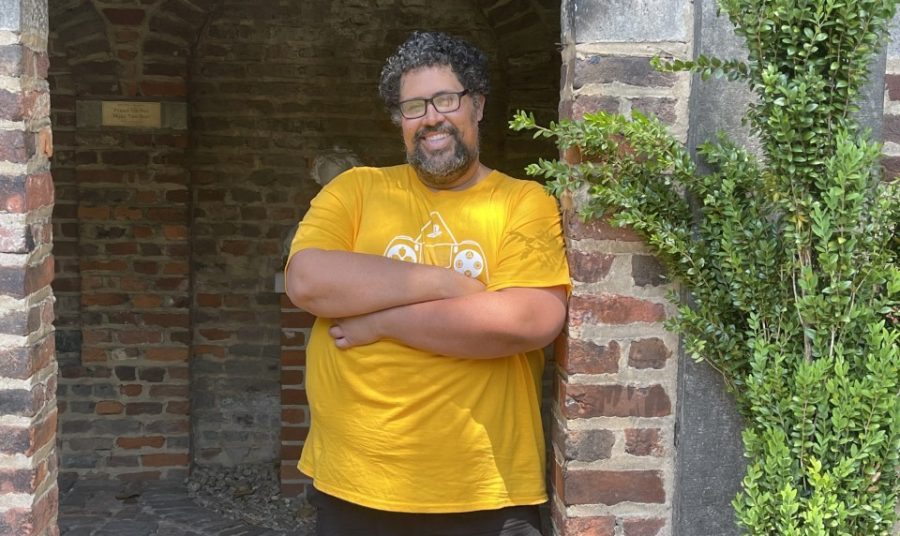ELL students use comic as textbook, create accessible audiobook
Students in one English Language Learning class use the graphic novel “Puerto Rico Strong” created by Marco Lopez, (shown) as their textbook and are working creating an accessible audio book version.
March 18, 2023
Students in one English Language class are using a graphic novel as their textbook.
Two of instructional specialist Owen Silverman Andrews’ High Intermediate Reading and Writing students also are creating an audiobook based on the graphic novel, “Puerto Rico Strong,” to make the course more accessible to students with disabilities.
Most of the students in the class are not native English speakers.
Andrews said the graphic novel, an award-winning anthology comic, makes the course an “accessible” and “culturally relevant” introduction to English for students of “diverse language backgrounds.”
“In the past we used a kind of standard, boring, corporate textbook,” Andrews said of ELL 314, whose students are English language learners. “And it’s really invigorating to see the change in the way those students are responding [now].”
Andrews said his late childhood friend, Pueto Rican Silvio Acevedo, inspired him to create the class because “he embodied joy, curiosity and passion I am attempting to infuse into the class.”
“Puerto Rico Strong” includes multiple “personal” stories focusing on the “resilience” and “hope” of the island’s people through “struggles and strife,” ranging from colonialism to hurricanes.
Marco Lopez, who created the graphic novel, said there’s a mentality within Latino culture that “no matter how hard you get knocked down, [you] get back up.”
“There’s hope that even though you go through something that’s horrific … there’s always a light at the end of the tunnel isn’t always a brighter future for not only for yourself, but for the island,” Lopez told Campus Current.
First-year ELL student Alessandra Castro, one of the two students helping to adapt the book to audio format, said the graphic novel’s illustrations make learning English easier than with a normal textbook because it’s more “organic.”
“I feel very passionate about the topic that we are learning about,” Castro said. “The fact that it’s a comic book makes it more fun to read and more easy to understand.”
Norma Santiago, the other student who is helping with the audiobook, is from Puerto Rico and lived through severe hurricanes “so it has interpretation by a student who knows the story firsthand,” Andrews said.












